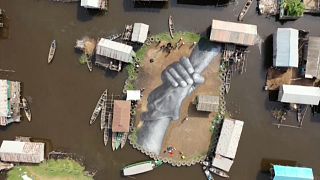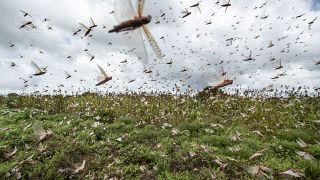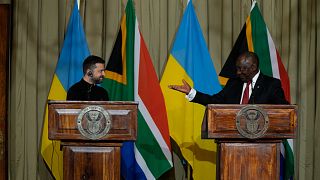South Africa
One year into the COVID-19 pandemic, the world has seen death, economic hardship and anxiety on an unprecedented scale.
But this tapestry of suffering is threaded through with self-sacrifice, courage and a gritty determination to persevere.
In places around the globe, people are reinventing themselves, helping others and even going back to square one in their careers, while never giving up.
When Sandile Cele had to register for a PhD at the University of Kwazulu-Natal, the global pandemic made it easy for him to decide on a research topic.
His research then became world news.
Cele, who has a masters in biochemistry, was hired by the Africa Health Research Institute in Durban to do research on the HIV evolution of drug resistance.
But when COVID-19 struck the world, the institute shifted its focus on the coronavirus.
In December last year, the AHRI team was involved in the discovery of the new variant 501Y.V2, globally known as the South African variant.
Cele, 33, figured out how to grow the variant in the laboratory, which enabled the lab to test it for further research.
He managed to "outgrow" the virus from swabs from infected people.
With those tests, the lab found out that people previously infected with COVID-19 wouldn't have produced the antibodies for the new variant.
Some institutes around the world have now requested samples to do their own research.
Cele says it is every graduate student's dream "to have a project for your PhD that's going to have so much impact in the world".












01:02
WHO member countries draft landmark preparedness treaty for next pandemic
01:36
3D telemedicine brings healthcare to rural Ghana
03:52
Genetic Modification of Mosquitos: A Potential Breakthrough in the Fight Against Malaria
11:22
Marking five years since COVID-19 was declared a pandemic
01:20
A look back on five years of Covid-19
01:28
Mpox is not the new COVID - WHO